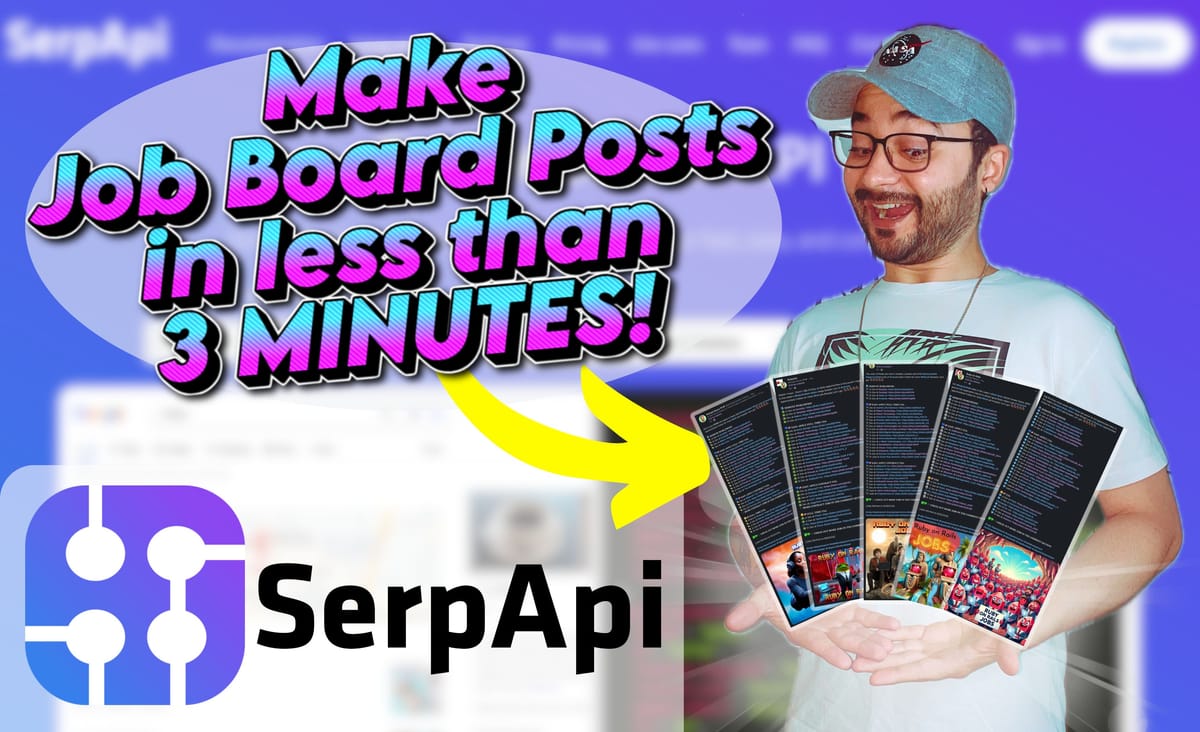Google Jobs is a robust jobs aggregator. It consolidates job listings from various platforms, including other job boards and company career pages, into a unified search experience directly accessible on Google. When a user searches for job-related keywords, Google Jobs presents an interface that gathers and displays these aggregated listings from across the internet.
By moving beyond simple keywords, you can filter out the noise and find roles that are a perfect fit for your skills and career goals. Google Jobs query operators are simple commands you can type directly in the search bar to tell Google exactly what you are looking for.
Query Operators That Work Directly On Google Jobs
" "(Quotation marks)
- Used for Exact Phrases. It forces Google to search for the exact phrase. (The phrase may not be in the job title, but could be in the description instead)
- Example Use Case: You want to look for jobs with a specific title
- q=
"Senior Product Manager"
- q=
- Try it in our playground:

AND
- Used to include any result that contains all terms specified.
- Example Use Case: You want to look for jobs that mention software developer and manager keywords
- q=
developer AND manager
- q=
- Try it in our playground:

OR
- Used to include any result that contains one of the terms specified.
- Example Use Case: You want to look for software developer jobs or manager jobs
- q=
developer OR manager
- q=
- Try it in our playground:

*(Wildcard placeholder)
- Use * as a placeholder for zero or more unknown words.
- Example Use Case: You want to look for different kinds of senior developer jobs which may have other words between "senior" and "developer", like senior application developer
- q=
senior * developer
- q=
- Try it in our playground:

() Grouping
- You can combine operators neatly.
- Example Use Case: You want to look for data scientist jobs or ML engineer jobs in a particular location
- q=
("data scientist" OR "ML engineer") AND "Dublin, CA"
- q=
- Try it in our playground:

after
- You can set a date to specify that you only want to see results posted after that date. Jobs posted on or after the date you specify are included in the search results.
- Example Use Case: You want to look for software developer jobs posted after August 13th 2025.
- q=
software engineer jobs after:2025-08-13
- q=
- Try it in our playground:

Additional Query Operators That Work For Filtering Jobs on Google Search
For job searches, the Google Jobs API is generally the most suitable, though the Google Search API offers certain benefits as well. These are some operators Google Jobs does not natively support, but you can use on Google Search to find direct links to relevant jobs. Google Search supports all the operators in the previous section as well, and these are some additional ones that work only with Google Search. These may be useful in cases where you want to find hyper-focused jobs for your job board or you are looking for jobs with very specific requirements.
-(Exclusion of Terms)
- You can exclude any terms you don't want in the results
- Example Use Case: You want to look for Software Engineer jobs which don't need knowledge of Java.
- q=
"Software Engineer - Backend, Mid-Level" -java
- q=
- Try it in our playground:

site: Tag
- The
site:tag is used to limit results to some sites. - Example Use Case: You want to get all the LinkedIn Job page links for Senior software engineer jobs posted there.
- q=
senior software engineer site:linkedin.com/jobs/view
- q=
- Try it in our playground:

before
- You can set a date to specify that you only want to see results posted before that date. Jobs posted on or before the date you specify are included in the search results.
- Example Use Case: You want to look for software developer jobs posted before August 13th 2024 on greenhouse.io
- q=
software engineer before:2024-08-13 site:greenhouse.io/
- q=
- Try it in our playground:

Additional Tips
Use Location to Your Advantage: Google Jobs is particularly great at handling location-based searches. Typing in "jobs in <specific city>" tailors the search results to your area but also gives you an idea of the job market and the types of roles available in that city. Here's an example query to try: "marketing positions in San Francisco, CA".
Here's an example in our playground:

Limit Results to Direct Application pages: While the Google Jobs API is usually the most applicable of our APIs for searching for jobs, the Google Search API has some advantages as well. On Google Search, using the site: tag it is possible to get direct links to pages where you can apply for open jobs. Many direct applications are hosted on sites like Greenhouse, Jobvite, or Lever. For example, if you're looking to apply for software engineer jobs, you can find the direct links to apply to them via a quick search with a query like this: "software engineer site:greenhouse.io/"
Here's an example in our playground:

Automating Jobs Data Collection
Running these searches manually is great if you're only looking for jobs for yourself. However, if you're looking to build a tool to automate finding specific jobs for your job board or for a side project, you can use SerpApi's Google Jobs API and Google Search API to get jobs data in a structured JSON format.
SerpApi allows you to programmatically run your Google searches and receive results via our fast and easy APIs. We also offer many no code and low code options via our integrations with Make.com, Bubble.io, n8n, Google sheets and more.
To begin scraping data, first, create a free account on serpapi.com. You'll receive 250 free searches each month to explore the API. Here is a guide on how to scrape results from our Google Jobs API.
Conclusion
You can use search operators to zero in on job boards, company sites, and specific titles or locations. Mastering these gives you an undeniable edge in narrowing down on the right job listings.
I hope you found this post helpful. If you have any questions, please feel free to reach out to me at sonika@serpapi.com.
Relevant Links
Related Posts

















